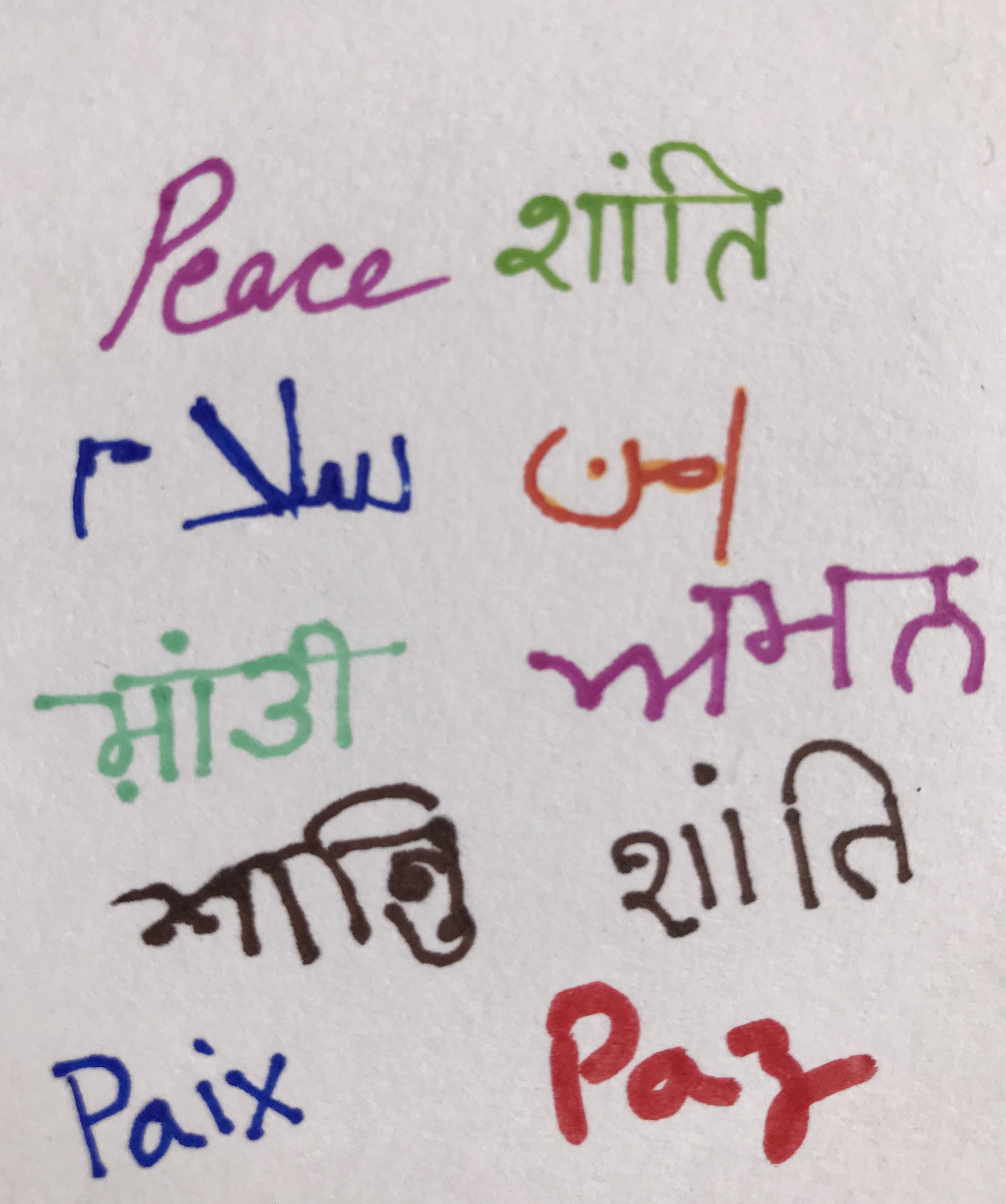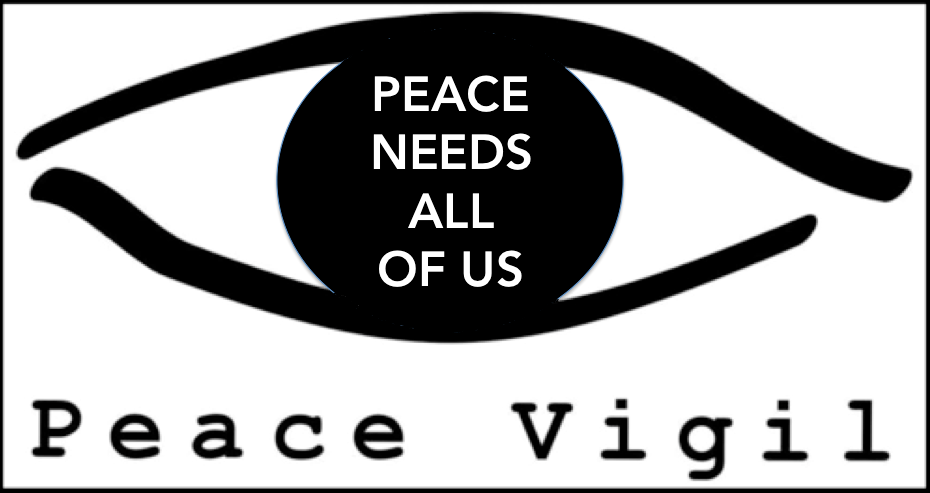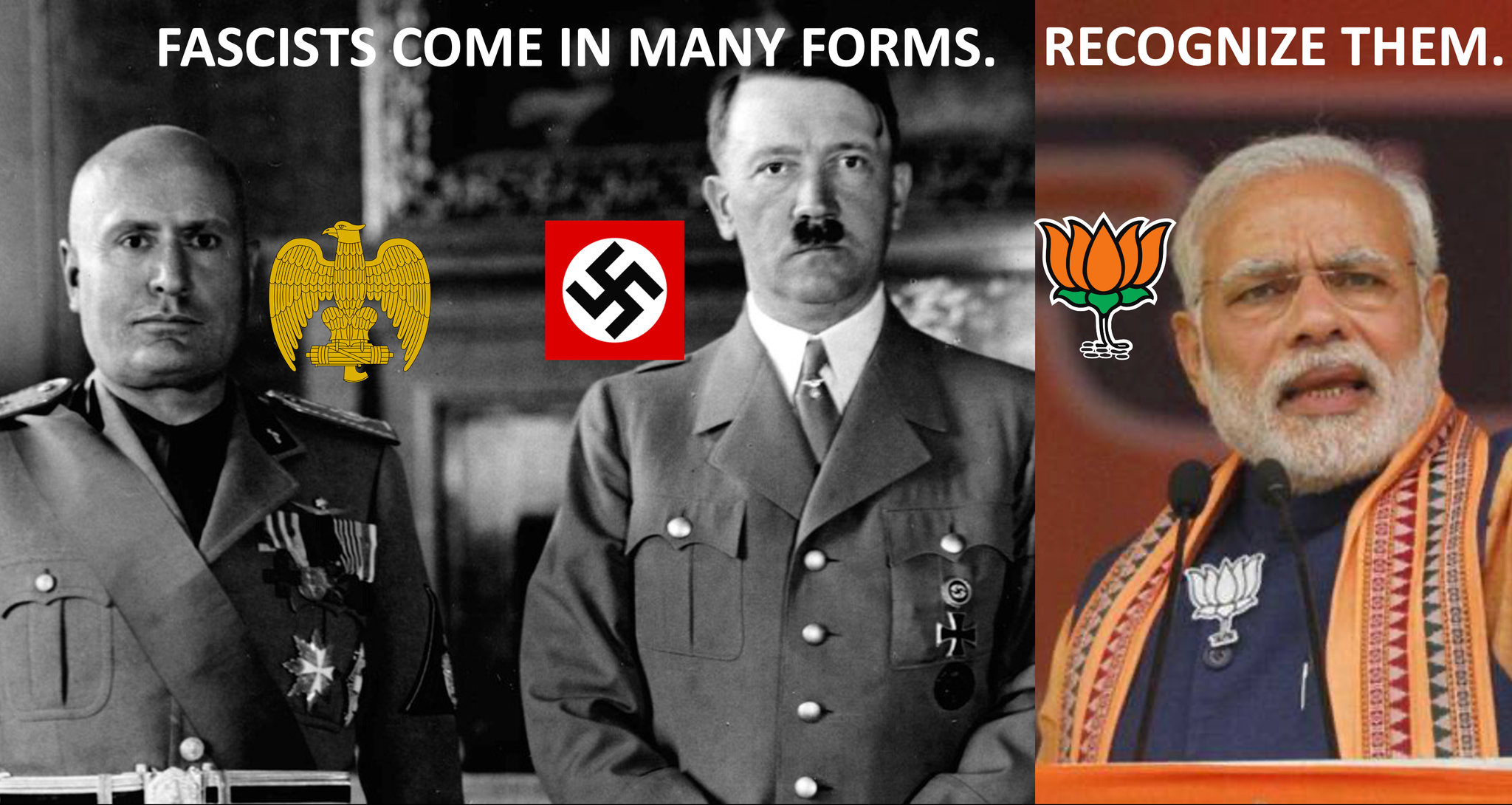Mussolini Explains Adani
What word do you first think of when I say the name “Adolf Hitler”? Racism? Nazism? Evil?
Most people do not know that Hitler’s regime was largely inspired by the Italian Fascism of Benito Mussolini. Mussolini was such an inspiration that Hitler wrote the following: “the brown shirt might not have been created without the black shirt.” These are references to the uniform colours of the Milizia Volontaria per la Sicurezza Nazionale (MVSN) in Italy and the Schutzstaffel (SS) in Germany.
Both of these paramilitary units, the MVSN and the SS, have gone down in history for being among the worst terrorizing forces the world has ever known. They spied on people, and tortured and killed many, often for identifying with a different ideology. The Rashtriya Swayam Sewak Sangh (RSS) was formed in 1925 in India along very similar lines. Its political arm, the BJP, currently leads the central government in India and also heads many state governments. Unlike the other two organisations, the RSS still exists and plays a central role in Indian and world politics.
For this reason, we should revisit Mussolini’s writings to understand more about how the founder of this strain of thought was thinking about power. According to Mussolini, fascism is “the merger of state and corporate power”. Now he had a very specific idea for what that should look like – the state should align themselves with the big corporate houses of the day and form a kind of Public-Private Partnership. The Wikipedia entry on Corporatism describes Mussolini as advocating “a merger of crony capitalism and state capitalism.”
For those following current events in India, these words may hit close to home. Perhaps it was these lines from Mussolini that inspired BJP leader Narendra Modi to support Gujarati businessman Gautam Adani when Modi came to power in 2014. At the time, Adani was hardly on anybody’s radar. He was the 22nd richest man in India and not on any global lists of wealthy individuals as yet. Adani’s net worth increased from around $2 billion in 2013 to a staggering of $136 billion in 2022. In less than a decade – a decade of BJP rule – his wealth increased a staggering 68 fold. That total made him the third richest person in the world.
Much of Adani’s wealth comes from his alliance with the BJP-led government of Narendra Modi. His company has received contracts for airports, energy, and more. He’s even been made a major shareholder of formerly state owned banking and insurance companies. Adani was granted some of these contracts despite objections from the Indian Finance Ministry. Perhaps the merger of corporate and state power was such a priority to Modi that he was willing to veto objections that turned out to be valid.
In the last few weeks, Adani’s personal net worth has plummeted along with his share prices. On January 24 of this year, Hindenburg Research issued a report accusing the Adani Group of “brazen” market manipulation and fraud. Those allegations have caused some of Adani’s international partners such as Credit Suisse to downgrade the company making it more difficult for Adani to raise international capital. The saga is still unfolding but given that the Indian state is heavily implicated in all of this, some form of bailout seems likely.
One question that arises from this is the following: what is the purpose of public assets? There was a time when public assets were meant to increase the public good. The state would invest in, for example, institutions of higher learning – IIMs, IITs (Indian Institutes of Management and Indian Institutes of Technology) and so on – so that more people could have access to education.
At the moment, the purpose of public goods seems to be to strengthen alliances between the very wealthy and politicians. Millions of Indians have savings in the Life Insurance Corporation (LIC) and the State Bank of India (SBI). It is not clear that these institutions will emerge from this unscathed. Even if they do, why should those savings have even been under threat from business dealings that were obviously corrupt even prior to the current allegations?
Mussolini saw himself as the rebuilder of Italian glory, someone who would take Italy back to the glory days of the Roman empire. In order to do that he needed to form alliances with like-minded business people. There is no doubt that the RSS shares similar visions of returning India to some fictionalised state of glory. Their strategy for doing this is the same as Mussolini’s – support like-minded business people who will then support you. The leader’s name should be synonymous with the state but relying on the backing of these powerful interests to actually control everything and to profit. When one reads Mussolini, one gets the idea that this identification is very real. Mussolini is Italy and Italy is its wealthy elite. So perhaps it should come as no surprise that Adani’s first response to these allegations was the following: “This is not merely an unwarranted attack on any specific company but a calculated attack on India, the independence, integrity and quality of Indian institutions, and the growth story and ambition of India.”
Is Adani India? Or is India the 1.3 billion people who live in it? That question underlies the real issue. Will India follow the example of 20th century fascism that its leaders so desperately want to emulate? Or will India walk another path?
“Political democracy cannot last unless there lies at the base of it social democracy. What does social democracy mean? It means a way of life which recognizes liberty, equality and fraternity as the principles of life.” These words were written by B.R. Ambedkar, often known as the father of the Indian Constitution. If Ambedkar were alive today, what would he think of the merger of crony capitalism and state capitalism? There’s no way to know for certain, but it seems likely he would conclude that these are not compatible with Indian democracy.
By the time the world figured understood that Mussolini’s ideology represented a huge threat, it was too late to stop a war. The Modi government is still in the process of consolidating its political and financial power. It may not be too late to save Indian democracy and the world from another catastrophe.
Sameer Dossani,
Co-director, Peace Vigil
Peace Vigil works on Peace Education. Peace Needs All of Us.





